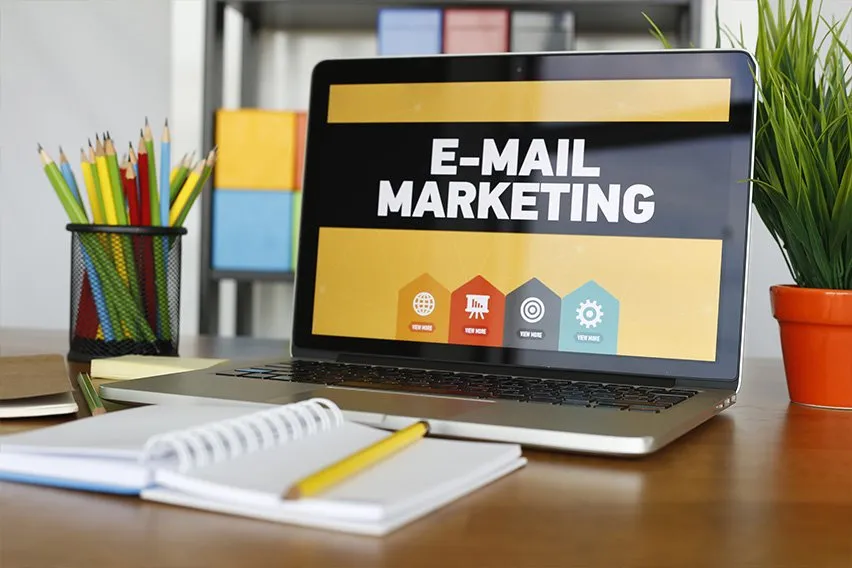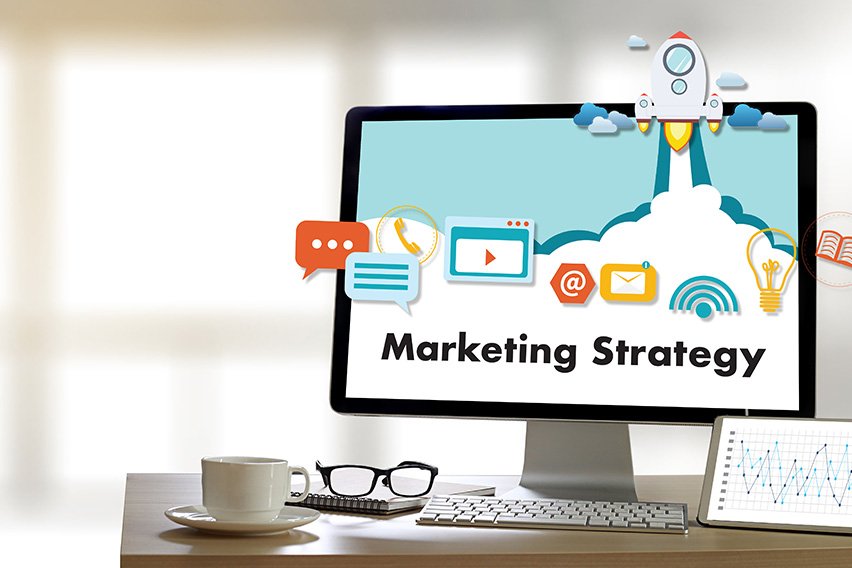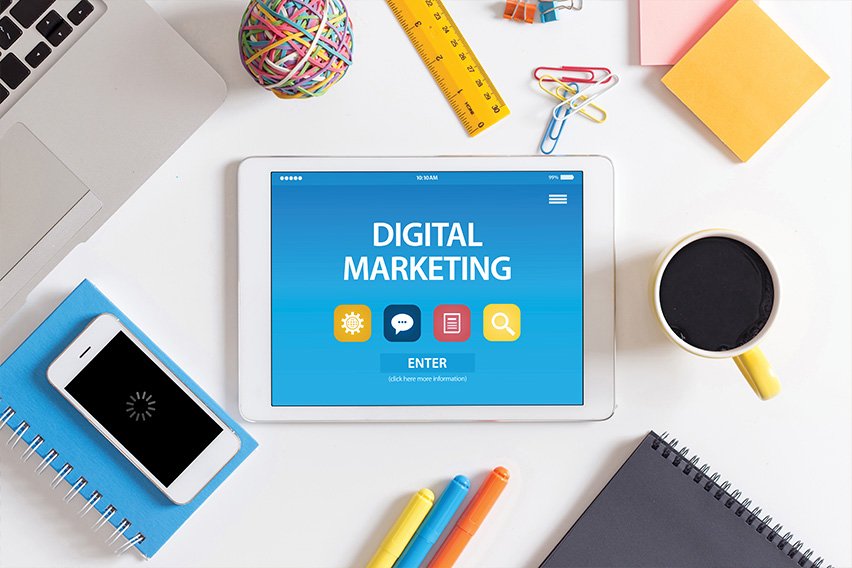Small Business Email Marketing: Top 5 Benefits of Email Marketing

Small business email marketing refers to the digital marketing strategy of sending emails to prospective and existing customers. It is a cost-effective direct marketing tool to reach and engage with your customers, promote your brand and increase sales.
Not only is it easy to manage, but it gives business owners a direct and effective way of connecting with prospects, nurturing them and converting them into sales. Even with the explosion of new technology and social media channels, email continues to deliver the highest ROI for marketers.
What this article covers:
- CRM and Email Marketing for Small Business
- Why Do Businesses Use Email Marketing?
- Tips for Email Marketing for Small Business Owners
CRM and Email Marketing for Small Business
CRM or customer relationship management system is used by small businesses for sales management, contact management, improving productivity etc.
CRM records the customer contact information, captures the business’ interaction with the customer, organizes the information to provide a complete record of individuals and businesses and helps in forging and developing long-lasting customer relationships. It provides vital information about sales revenue, leads, contacts, activity tracking, pipeline and opportunities.

An email marketing tool is used to house customer contact information and send segmented lists of contacts targeted and broadcast e-mail messages. The e-mail messages encourage different types of action based on the behavior of each person on a contact list. It tracks the performance of the campaigns including how many people have opened their emails and clicked on the links.
Every small business needs a CRM system to track and record data. A small business CRM tool allows business owners to manage various aspects of the company, including email marketing. The email marketing software is used to track click-through rates, open rates, conversions and bounce rates.
Why Do Businesses Use Email Marketing?
Businesses use email marketing to connect and cultivate relationships with their potential customers, keep in touch with current customers and update them about changes in the business, offer promotions and coupons to encourage customer loyalty.
In a research by MarketingSherpa, it was found that a vast majority of adults in the U.S. want to receive promotional emails from companies they do business with
Here are some reasons why small businesses use email marketing to reach people directly in the place they visit the most – their inbox:
- Email helps small businesses build credibility with their customers by sharing beneficial and informative content
- Email gives you the ability to stay top-of-mind and keep people engaged with your business
- Email marketing is a valuable tool for boosting sales – both online and in-store
- It’s inexpensive, easy and has a high ROI as compared to marketing on traditional channels such as TV and radio
- It’s easy to reach customers on mobile devices
- Email marketing makes it easier for you to track different metrics and see how your emails are performing
- Email newsletters are an excellent way to generate leads for the business and attract new clients
- Instead of having to wait for results, with email, you can track how your different campaigns are performing and make changes accordingly
Tips for Email Marketing for Small Business Owners
Create and Segment Email Lists
The foundation of effective email marketing is a good email list that contains the name and current email address of each receiver. You can gather the data from business contacts, customers, suppliers, investors, social media connections etc.
If you need to grow this list, offer small incentives in exchange such as coupons, discounts or contests. Segment your list into different sub-groups to boost response rates.
Personalize Email Marketing Campaigns
While it may be easier to send the same email to every subscriber on your email list, especially when you’re strapped for time, small business owners should aim for targeted personalization. This not only increases customer engagement but also helps in driving revenue. Using the subscriber’s name and other personal details in the subject line or in the body of the email is easy to set up and helps in building connections.
Create Mobile-Friendly Emails
An effective email marketing campaign should be designed keeping all users in mind. While designing the email, make sure they look just as good on mobile devices as a desktop or laptop.
Many email service providers offer responsive drag-and-drop templates that automatically adapt to mobile formats. The simple drag-and-drop editor allows you to customize the template by adding colors, content blocks, images and social buttons. Check the mobile preview of the email to ensure that they look good on small screens.
Automate Emails
Automatic email campaigns once set up, automatically send relevant emails to individuals when they meet a certain trigger such as new signup or a purchase.
Automating emails, such as the welcome email for connecting with potential customers quickly and transactional emails after a customer makes an online purchase, drive visits and revenue for your business. Since these emails are timely, they’re relevant and personalized to the reader.

Include Social Media Profiles
Newsletters can be effective in growing your social media profiles. The simplest and most effective way is to add the social media buttons in your newsletter so that your subscribers can share the content but also connect with you in the various social networks.
Monitor and Make Changes
Track and measure email marketing success metrics such as open rate, click rate and conversions to know if your marketing campaign is successful or not. For in-depth analysis consider syncing your email account with Google Analytics.
Also, your email messages should have an attention-grabbing subject line that is clear and compelling along with messages that provide value to its readers. A responsive design,
Monitor the analytics information in email marketing account to see which messages have been opened and been accessed most frequently. This should allow you to discern the message topics your audience finds most compelling.
There are a number of email marketing service that small business owners can choose from. You need to look for options that are easy to use and beginner friendly allowing you to manage your email lists, segment contacts and use email templates with drag-and-drop email builder. Most service providers such as MailChimp, Constant Contact and ActiveCampaign give you access to easy tracking and detailed insights.
RELATED ARTICLES

 9 Small Business Marketing Strategies on a Tight Budget
9 Small Business Marketing Strategies on a Tight Budget How to Prepare Annual Report for Your Small Business
How to Prepare Annual Report for Your Small Business Digital Marketing for Small Businesses: the Top 5 Channels & Methods Critical for Success
Digital Marketing for Small Businesses: the Top 5 Channels & Methods Critical for Success 7 Types of Advertising to Promote Your Small Business Effectively
7 Types of Advertising to Promote Your Small Business Effectively The Difference Between Marketing and Advertising: Why Your Small Business Needs Both
The Difference Between Marketing and Advertising: Why Your Small Business Needs Both